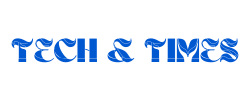In the digital world, websites and platforms offer a range of services, from educational content to tools for various tasks. However, in recent years, the internet has witnessed the rise of data leaks and unauthorized access to information. Among such cases, “thejavasea.me leaks aio-tlp” has been a topic of discussion. This article explores what this keyword entails, its implications, and what users should be aware of.
What is Thejavasea.me?
Thejavasea.me is an online platform that appears to provide a range of resources and data, mostly related to tech-savvy individuals or those interested in technical tools. The site, from its surface appearance, gives the impression of being a central hub for tech-related leaks and software resources, which can be useful but may also carry risks.
A Brief History of Thejavasea.me
Over time, websites like thejavasea.me have emerged as platforms offering open-access resources. While some platforms operate within the bounds of legality, others operate in gray areas or even engage in illegal activities, such as hosting pirated content or facilitating unauthorized data leaks. The website became increasingly known for sharing tools and resources without clear transparency regarding ownership or permission, making it a controversial entity.
What Does “Leaks AIO-TLP” Refer To?
AIO in the Context of thejavasea.me
“AIO” stands for “All-in-One,” typically used to refer to a collection of tools or resources bundled into a single package. The AIO packages found on platforms like thejavasea.me often consist of various technical tools, data sets, or even software that can be accessed or downloaded in a single place. These tools may range from productivity-enhancing applications to potentially questionable content that may not have been acquired legally.
The Significance of “Leaks”
When combined with the term “leaks,” AIO implies that the platform might be sharing unauthorized or unreleased content. These leaks could include anything from confidential data, software, or even paid resources made available for free. Websites like thejavasea.me often host such materials, leading to concerns about data security and the ethical considerations surrounding leaked content.
Understanding TLP
TLP, or “Traffic Light Protocol,” is a system used to classify the sensitivity of information shared within closed communities. It uses color codes to indicate how information can be shared. For example:
- TLP: Red means the information is only for specific recipients and cannot be shared.
- TLP: Amber means the information can be shared within a community but not publicly.
- TLP: Green implies that the information is free to be shared but within a trusted group.
- TLP: White indicates the information is available for public release.
In the context of “aio-tlp” on thejavasea.me, it suggests that the platform may have gained access to and distributed resources that fall under these different TLP categories, potentially violating trust agreements or confidentiality.
Risks of Accessing Content from Thejavasea.me
While the allure of free tools, data, or resources may be tempting, there are numerous risks associated with platforms like thejavasea.me:
1. Legal Risks
Downloading or accessing leaked content may be illegal, depending on the jurisdiction. Many AIO packages shared on such platforms include pirated software, proprietary data, or confidential information that was not meant for public distribution. Engaging with such materials can result in legal consequences, including fines or legal action.
2. Security Risks
One of the most significant risks is related to cybersecurity. Downloading resources from thejavasea.me, especially if they are not from verified sources, could expose users to malware, ransomware, or other malicious software. Leaked content often comes without guarantees of safety, leaving users vulnerable to cyberattacks.
3. Ethical Concerns
Beyond legality, there are ethical issues surrounding the use of leaked information. Accessing and using tools or data that were not meant for public use undermines the trust and privacy of individuals or organizations. It’s crucial to consider the ethical implications before engaging with such platforms.
How to Safeguard Yourself
If you are tempted to access content from platforms like thejavasea.me, it’s essential to take measures to protect yourself:
1. Avoid Downloading Unverified Tools
Never download software or data from websites you cannot fully trust. Malicious actors often use such platforms to spread malware under the guise of useful tools or free software. Always verify the source of any download before proceeding.
2. Use Antivirus Software
Strong antivirus software is vital to prevent malicious downloads from compromising your system. Ensure that your security software is up to date and that it scans any new files you download.
3. Be Aware of the Legal Landscape
Ensure that you are aware of the legal consequences in your country related to downloading leaked or unauthorized content. If you are unsure whether accessing content is legal, it’s best to refrain from doing so.
4. Consider Ethical Implications
Before accessing leaked content, consider the ethical consequences of your actions. While the internet may provide a sense of anonymity, engaging with unethical content can have far-reaching impacts on others’ privacy and security.
Alternatives to Thejavasea.me
For those seeking legitimate tools and resources, there are plenty of alternatives to platforms like thejavasea.me. These platforms offer free or affordable resources while operating within legal frameworks:
1. GitHub
GitHub hosts an extensive collection of open-source software that anyone can access for free. It is a legitimate and trusted platform used by developers around the world to share and collaborate on projects.
2. Stack Overflow
For technical knowledge and troubleshooting, Stack Overflow is an excellent resource. While it doesn’t offer downloadable tools, it provides valuable guidance on coding, development, and other tech-related challenges.
3. Official Software Marketplaces
Instead of downloading software from questionable sources, consider using official app stores like Google Play, Apple’s App Store, or trusted websites that offer verified downloads. This ensures the safety and legality of the tools you are using.
4. Free Trials and Educational Versions
Many software companies offer free trials or educational versions of their products. These options allow users to access the full capabilities of a tool without resorting to illegal means. Exploring these official channels ensures that you remain within the bounds of the law.
The Future of Platforms Like Thejavasea.me
As governments and corporations tighten control over data privacy and cybercrime, platforms like thejavasea.me may face greater scrutiny. The increase in data leaks and unauthorized sharing of tools is likely to prompt regulatory action, which could result in websites like thejavasea.me being taken down or forced to operate under stricter guidelines.
However, the persistence of such platforms reflects a broader issue: the demand for free or unrestricted access to resources. As long as this demand exists, platforms will continue to emerge in various forms, posing risks to users and challenging legal boundaries.
Conclusion
In conclusion, while platforms like thejavasea.me may seem to offer valuable resources, they come with significant risks. From legal consequences to security threats, the dangers of engaging with leaked content are substantial. Users must remain vigilant and opt for legitimate alternatives whenever possible.
Staying informed about the implications of accessing unauthorized content and taking proactive steps to protect your digital security is crucial. As the digital landscape continues to evolve, so too will the challenges associated with maintaining online safety and privacy.


